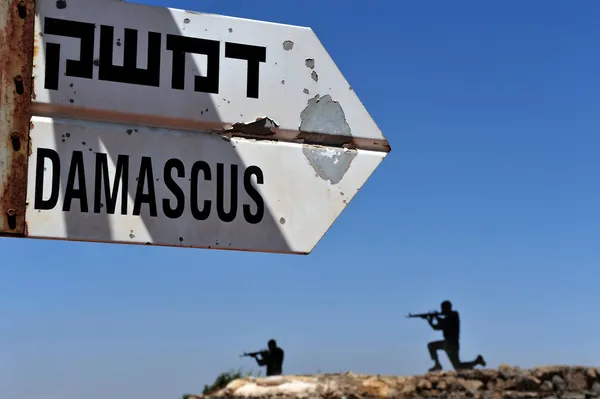As time goes by, the world seems that forget Syria and the sufferings of the people who stayed there. They are deprived of everything including electricity. Syrians desperately need electricity because life must go on. And in great part, everyday life depends on power. Solar power might be a solution.
For 11 years Syria is a war zone. There is a deep energy crisis, everyday blackouts and the state grid is in poor condition. For things to be worst, the price of diesel to operate small generators is going up. If there is diesel at all.
So, people had to find cheaper and steadier solutions to have power whenever they need it. It means they still must save it, but saving power is better than having no power at all. Thus Syrians began to turn to alternative energy sources, mostly solar.
The installation of a small solar panel system is not cheap. For small business owners, it may cost several thousand dollars. But it is worth it. They see it as an investment that will turn back. But those who can afford small solar systems are the lucky ones.
The others who rely on the public electricity grid or have diesel generators are heavily hit since the energy crisis started. There are fuel shortages and state-imposed restrictions and limitations both for common people and public institutions.
Assad is under sanctions, but people suffer
The war, which began as a protest against President Bashar al-Assad in 2011 has already claimed more than 350,000 lives. Besides, it has utterly destroyed Syria’s national infrastructure.
A greater economic collapse brought on by the conflict, Western sanctions, a currency collapse, and the government’s loss of its northeastern oil-producing provinces has all contributed to the power crisis.
According to a government estimate released this year, the war caused direct and indirect damage to a power grid that once served 99% of Syria totaling 6.1 billion Syrian pounds ($2 billion).
The state has introduced incentives, such as the elimination of duties on imports of equipment required to create alternative power systems, in an effort to promote increased investment in renewable energy.
When Assad visited a solar energy facility in September, the state’s priority was still on conventional power generation, but he expressed support for private sector investment in solar and wind energy, according to the state news agency SANA.
He continued by saying that the government may participate by purchasing electricity and reselling it to end users.
But is it enough?
The following month, Assad amended an electrical law to enable power providers to sell electricity directly to consumers for the first time. Thereby he promoted private sector investment in both conventional and renewable energy.
According to Madian Diyar, president of the Syrian Investment Authority, five renewable energy projects totaling 200-megawatt hours have already received permits. The government assessment says that is still a drop in the ocean compared to the 49-billion-kilowatt hours of electricity produced by Syria prior to the conflict.
The first private investments in solar power
One of the first private investments in the solar power system that got a license to build a solar farm for selling electricity is in the central province of Hama. Their output is 1 megawatt from the plant built two years ago. They sell electricity to the state grid. The owners say they would like to produce more, but they face obstacles. It is difficult to import equipment due to Western sanctions.
Also, the collapse of the Syrian pound and the enormous difference between the official and black-market currency rates discourages potential investors and makes it more difficult to acquire the necessary equipment.
Solar power cannot surpass cold winter times
Millions of people in Syria have been falling further and deeper into poverty each year. And they have to go through the cold winter now. Their country is under economic collapse. The situation is getting worse as state revenues are plummeting. It forced officials to reduce the subsidies that protected Syrians from the harshest effects of the crisis.
Additionally, the government is finding it difficult to pay for fuel imports after the conflict in Ukraine increased global energy prices. Shortages even prompted the prime minister to declare two more days of public institution closures this month. In order to save stadiums’ gasoline, sports authorities postponed basketball and soccer tournaments.
Syrians who are still eligible for subsidized diesel can purchase 50 liters for 500 pounds (less than 10 cents U.S.). But supplies have been slow to arrive and are insufficient to sustain a family for an extended period of time.
Limited quantities of non-subsidized diesel are sold by the government for five times that amount, but diesel is sold on the black market for more than 30 times the amount that is subsidized.

